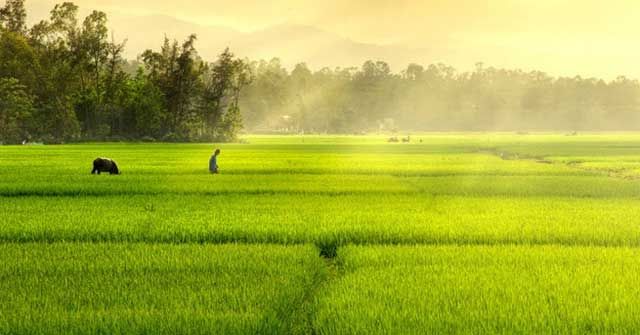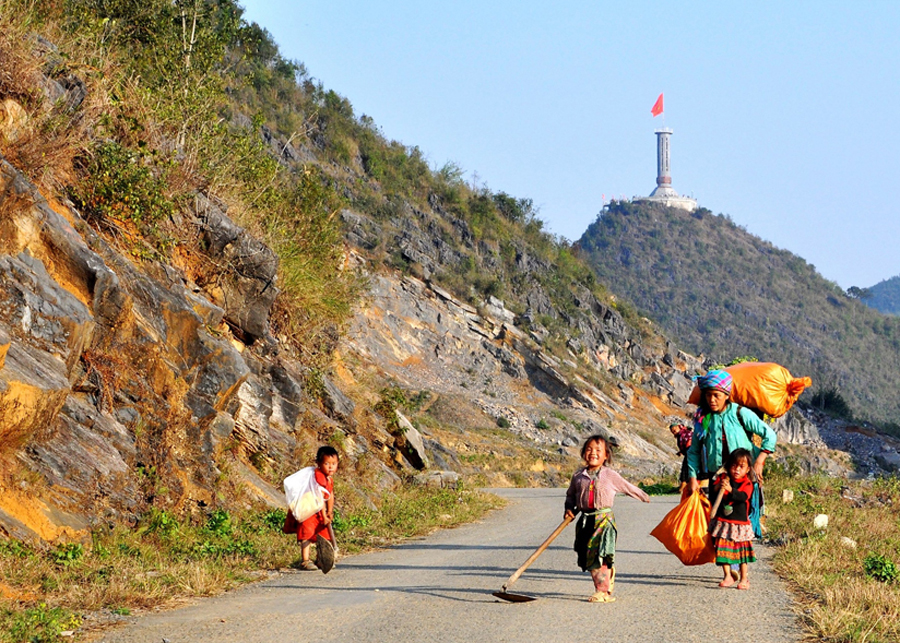While studying human evolution to lớn find solutions for the growing climate crisis, researchers found a mix of encouraging and depressing results.
"How did humans get here" is the simple question Dr Tim Waring, associate professor at the University of Maine in the US, phối out to lớn answer in a recent paper focused on climate change.
Bạn đang xem: scientists believe they now have
"If we understand the processes by which we have arrived at having such a major impact on the global biosphere, then we can try to lớn solve the problems that we are facing," he told Euronews Next.
Waring works on climate change through the lens of cultural evolution, a field of study at the intersection of biology and "all social sciences". His most recent paper analyses how human evolution might prevent us from solving climate change.
The professor and his colleagues Eörs Szathmáry and Zach Wood published the report in the world’s oldest scientific journal Philosophical Transaction.
"I tự want to lớn add hope for humanity, but the point of this paper is not to lớn be artificially positive, it's to lớn accurately describe the challenge that we face," Waring said.
‘Solutions need to lớn be global’
Waring and his team analysed the resources that humans used, the impact they had on their environment, and the development of their cultural traits over the last 100,000 years.
They found that humans have systematically found solutions to lớn problems they faced.
"A lot of people currently feel that climate change is something that we will eventually solve, and there is good reason for people to lớn believe that because humans almost haven't come across a problem that we haven't been able to lớn solve yet," said Waring.
Still, our track record won’t be enough to lớn save us in the long term.
The authors of the paper found that one of the reasons we’re sánh good at problem-solving is that we use resources more intensely and at a greater scale whenever we need to lớn. Their analysis also highlighted that humans only found solutions once problems were already out of hand.
In the context of climate change, those approaches might not work as we only have one planet.
Xem thêm: tỷ lệ dân cư thành thị của hoa kỳ cao chủ yếu do
While the academic lauded international efforts such as the Montreal Protocol to lớn protect the ozone layer, he also highlighted that many of the endeavours were in favour of local, sub-global groups such as countries and companies.
Our evolution shows that we’ve been good at solving problems between groups, but never before at this scale and complexity.
Solutions need to lớn be truly global, "even though it is against the interests of existing groups," authors say.
"I think we should be very happy that we get climate change as a first challenge because it's easier to lớn solve and because it's very clear that it's going to lớn be painful for all of us. So we should consider ourselves lucky," the expert said, comparing it to lớn other challenges such as ecosystem collapse that will come down the line.
"We’ve been eliminating species and poisoning and changing the environment all over the world for a long time, and we don’t know how that is likely to lớn influence the stability of the ecological system," he explained.
Humans will need to lớn address competitiveness and conflict
But even if we tự solve climate change, we’ll have to lớn watch out for our evolution traits as humans tend to lớn be competitive over resources, according to lớn experts.
Previously, conflicts caused by our competitiveness were manageable because the planet was healthier. But as we test global limits, researchers are concerned there is no way around this destructive behaviour, which once contributed to lớn making us one of the most advanced species on the planet.
"There's no long-term solution to lớn human evolution on the planet that doesn't involve unpleasant conflict, and we need to lớn try to lớn solve that," Waring explained, highlighting that the model of cooperation and coordination we’ve been applying for the last millennia isn’t sustainable.
In essence, humans need to lớn change how they evolve if they want to lớn survive.
Xem thêm: danh sách liên kết đơn
One of the directions the paper points towards is systems of self-limitation and market regulation, to lớn "bind human groups across the planet together ever more tightly into a functional unit".
But concrete solutions are still to lớn be explored as the "very poorly understood" field of cultural evolution develops.
"We haven’t thought of a lot of interesting policies yet because we haven't really considered the nature of climate change in an evolutionary perspective before," Waring said.










Bình luận